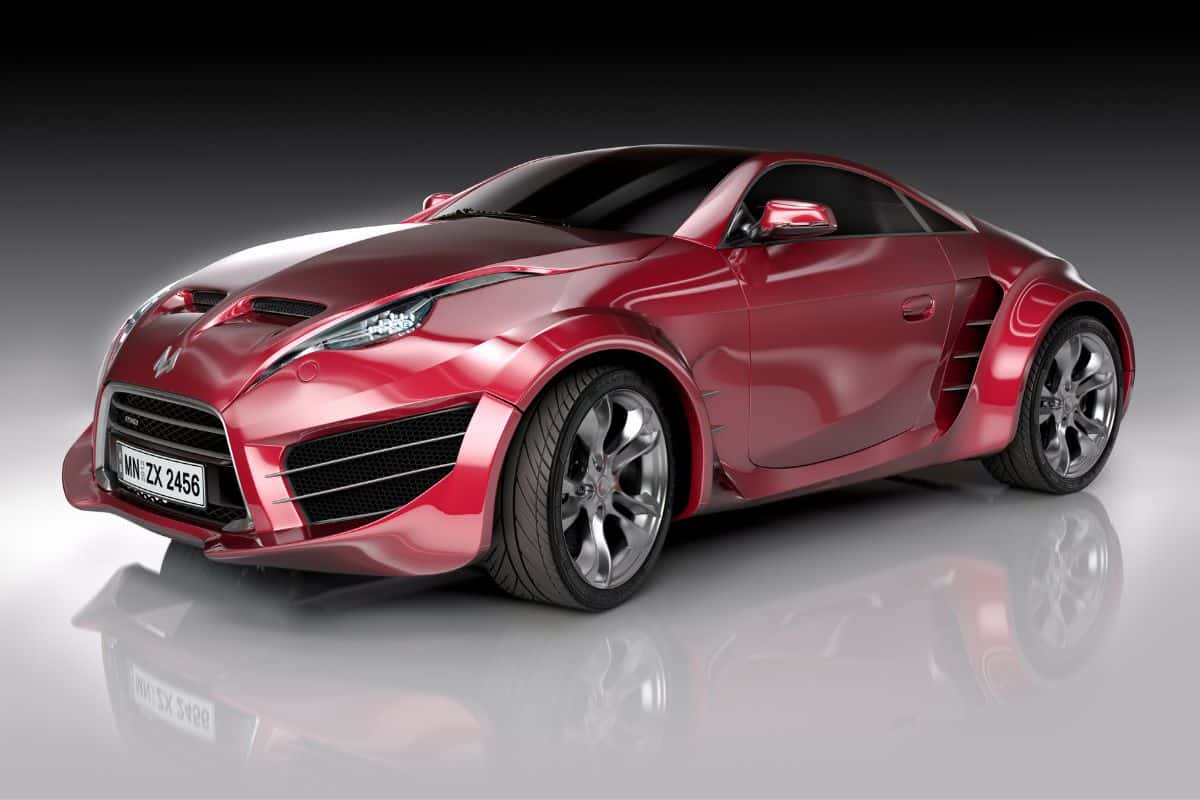Ever since they were first created, hybrid cars have been spoken about in relation to their impact on the environment.
These cars are often sold as being “cleaner” and less harmful to the world we live in than traditional vehicles. But is this true?

In short, yes it is. Both electrical and hybrid cars are better for the environment than gas-powered vehicles.
In this guide, we’ll be investigating the main reasons behind this. So let’s dive right in.
Seriously considering a hybrid car? Read my in-depth article on whether a hybrid car is worth it.
What Is A Hybrid Car?
First things first, let’s take a look at what a hybrid car is. The word “hybrid” means a thing that is made by combining two different elements.
In terms of vehicles, the word “hybrid” is used to describe a vehicle that is powered by both gas and electricity.
Hybrid vehicles aren’t a new concept, but they have become more popular in recent years as the true damage that the human race is inflicting on the Earth have been realized.
The first hybrid vehicle was actually produced in 1899 by engineer Ferdinand Porsche, but it took a long time for hybrid vehicles to really take off.
It is only now in the 21st century that people are truly starting to appreciate the hybrid car.
With advances in technology, hybrid vehicles are now just as attractive and efficient as their gas counterparts, which is a big part of the reason why so many people are investing in this type of car.
Although this isn’t the only reason. In fact, it isn’t even the biggest reason why these cars are becoming so popular.
The main reason why people are switching to hybrids is that they have a reputation for being “good for the environment”.
But is this true? Or is it just a marketing ploy? Let’s find out.
Are Hybrid Cars Good For The Environment?
Now that we know exactly what a hybrid car is, let’s take a look at if they are actually better for the environment.
Before we go any further, it is important to note that there are two different types of hybrid cars: traditional hybrids and plug-in hybrids.
So we will take a look at these two types of vehicles separately.
Are Traditional Hybrid Cars Good For The Environment?

Traditional hybrid vehicles are vehicles that have combustion engines which run on gas, and electric motors which run on electricity.
These styles of vehicles can only be filled with gas, you cannot charge the vehicle.
Instead the electric motor will charge itself through regenerative braking and internal combustion of the engine.
When it comes to traditional hybrid cars, on the whole, they are considered to be better for the environment. However, this is to a large degree dependent on your driving habits.
For example, if you do a lot of frequent, short trips (as most city driving is), then driving a hybrid vehicle will have a much more positive impact on the environment than if you were driving a gas vehicle.
This is because gasoline vehicles are responsible for a huge portion of the emissions released into the atmosphere.
By driving a hybrid vehicle, you will be reducing your gas emissions significantly, which is why so many people have switched to traditional hybrids, such as the Toyota Prius.
Are Plug In Hybrid Cars Good For The Environment?
The more advanced form of a hybrid vehicle is the plug in hybrid.
These vehicles differ from traditional hybrids because they allow you to choose which type of fuel you use.
With a plug in hybrid, you can drive your vehicle using gas, using electricity, or using both. This means that you can use your plug in hybrid as an electric car.
Most of the time, plug in hybrids will have a positive impact on the environment. Especially if you use the “electric only” option when driving for short distances.
But, even when you use your hybrid in “hybrid” mode, you will still have a lower impact on the environment than if you were driving a gas car.
In fact, some reports have shown that you can reduce your emissions by between 15 and 30% by doing this.
However, there are some reports which have suggested that plug in hybrids could be worse for the environment than gas vehicles.
This only applies if you are driving your hybrid in “gas only” mode.
Plug-in hybrids tend to be heavier than gas vehicles, so when they are driven in “gas only” mode, they actually produce more emissions than gas-powered vehicles.
But this aside, they are good for the environment.
Are Hybrids Better For The Environment Than Electric Cars?
If you are thinking about purchasing a hybrid car, then there is a good chance that you have considered purchasing an electric car too.
Electric vehicles are the future, and car manufacturers are really pushing this in their marketing campaigns. But are electric vehicles really that good?
While electric vehicles definitely have their drawbacks, in terms of the environment, they are definitely the better option.
Electric vehicles only use electricity to power the car, they do not use gasoline at any point, and as such, the amount of emissions generated by these vehicles is significantly reduced.
In contrast, both traditional and plug-in hybrid vehicles use gasoline when they are being driven.
While you can drive a plug-in hybrid using just electricity, it will still use gasoline when driven in hybrid mode, so your vehicle will produce emissions.
So, no, hybrids are not better for the environment than electric vehicles.
Electric cars are not without their faults, but in terms of emissions, they will always produce less than a vehicle that uses gasoline.
This is why they will always be better for the environment than hybrid vehicles.
Even though hybrid vehicles are better for the environment than gasoline-powered cars.
Summary
In short, yes, hybrid vehicles are good for the environment.
These cars produce fewer emissions than gasoline cars because they are powered by both electricity and gasoline.
So, if you want to reduce your emissions, purchasing a hybrid vehicle could be a good idea. Thank you for reading!
- Tesla Charger Installation Cost (Home Setups) - March 1, 2024
- Tesla Phone Key Disconnected (Troubleshooting Guide and Quick Fixes) - March 1, 2024
- Tesla FSD 12 (Explained) - March 1, 2024